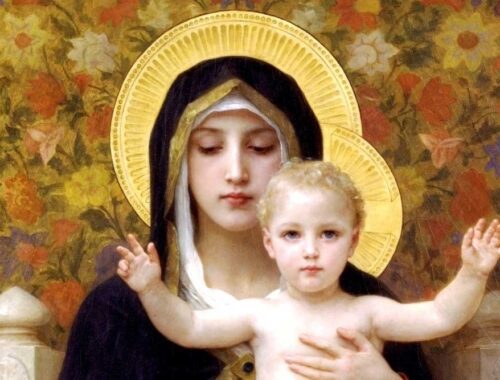Before we begin, I want to offer my love to all my LGBT+ and Latinx readers. We are grieving for all those precious, beautiful lives, and we are living with yet another ghastly reminder of the hatred that so many bear toward us. Today is the day after, where we have to try to keep putting one foot in front of the other, and keep breathing. Just keep breathing, beloved. We’re here, we’re queer, and love is love is love is love is love.
***
“Guard Your Heart” & “Redeeming the Time”
Joshua opens Chapter 11 with a few pages on how your feelings can get the better of you– if you let them. There’s a long story about “Emily” going away to college and interacting with decent Christian young men for the first time ever, and how that upends everything she “believed” about dating. He uses Emily’s experience to highlight “how easily [our heart] can be swayed in the wrong direction,” and then he launches into this:
First, picture guarding your heart as if your heart were a criminal tied in a chair who would like to break free and knock you over the head. (141)
Again, he’s chosen incredibly violent imagery to communicate his point. From falling off cliffs, to tightrope-walking over “gaping chasms,” and now physical assault and battery … everything is bent on convincing us how dangerous it is not to “guard your heart.”
What that can look like is basically girls nursing crushes on boys and boys lusting after girls. Interestingly, he uses the same term for both of these experiences– “infatuation”– but they look dramatically different based on his perception of gender. He’s certainly never walked in my shoes– my “crushes” (using his definition) have been few and far apart, but the times where I’ve been sexually attracted to a person in the way he describes that men experience “infatuation” are numerous and abundant.
He bases most of this chapter on a passage from 1 John: “Do not love the world, or anything in the world … For everything in the world–the cravings of sinful man, the lust of his eyes, and the boasting of what he has and does– comes not from the Father but from the world,” which Joshua reduces down to three categories: sinful cravings, lust, and prideful comparisons with others. To him, this translates into our romantic lives as infatuation, lust, and self-pity (143).
Which … just.. that’s a leap. This passage from 1 John is lifted out of a passionate argument to love our neighbors, deny antichrists, and how we “must live as Jesus did,” but he’s trying to make it be about avoiding romance and sexual attraction. First of all, his interpretation doesn’t really line up with traditional ones, and he’s also going out of his way to ignore the meanings behind ἐπιθυμία, σάρξ, ἀλαζονεία, and ὀφθαλμός– the words behind lust of the flesh, lust of the eyes, and pride of life. He defines epithymia ophthalmos as “to crave something sexually that God has forbidden” (146), and that’s just not accurate. I’m not a Greek scholar, but a brief look over the lexicons seems to indicate lust of the eyes doesn’t really have much to do with sexual objectification.
Also, how a word that essentially means “braggart” got turned into “self-pity” absolutely boggles me. It’s eternally frustrating when ten minutes of surface-level research completely upends an argument made by someone who claims to take the Bible seriously. No, Joshua, you really don’t, since you’re quite happy to make it say whatever you want. I’m a hippy-dippy liberal who doesn’t even think the Bible is inspired, and I’m not going to try to magically transform braggart into self-pity.
I’ve spent a lot of time dealing with Joshua’s particular tendency to conflate sexual attraction with sexual objectification here, so I don’t want to dig into that too much, other than to point out that sexual attraction is normal, healthy, and largely unpreventable, but sexual objectification is a problem.
This chapter is the first time I became truly angry with him, though (content note for homophobic bigotry):
This time, I could in no way mistake their intent or the reason I’d felt strange–these guys were homosexuals and were checking me out. They whistled, winked, and laughed at my bafflement. Finally they sped away, leaving me to fume.
I’ll never forget the anger and disgust I felt at that moment. I was outraged to have served as the object of their lust, to have their eyes crawling over me. It was so wrong, so filthy. I remember turning to God in self-righteous anger and hissing through my clenched teeth, “Those people are so sick!” (146)
Which brings to mind this definition of homophobia: “the fear that another man will treat you like you treat women.” Joshua does take an incredibly brief moment to compare the two, but it never seems to dawn on him that his reaction was spurred by femmephobia, homophobia, and misogyny. He says that his “heterosexual lust” is just as disgusting to God (147), but it’s clear that he’s comparing his sexual objectification to homosexuality in general.
Disgusting. Sick. Those are the exact ideas that Omar Mateen used to justify a massacre yesterday. And Joshua had the incomprehensible audacity to tweet “Praying for all those touched by this wicked act” yesterday when his feelings about my queer family were shared by that murderer. Joshua’s never killed anyone, but the blood is on his hands. He clearly said that disgust and repugnance are the God-sanctioned feelings that Christians should espouse toward LGBT people.
I’m beyond done. I’m furious.
***
The next chapter is a short treatise on everything single people should do before they find that “special someone,” including a 21-year-old’s wisdom about: child care, communication, budgeting, and home maintenance. I don’t really disagree with much in this chapter … although the fact that he’s a fundiegelical Christian trickles out in places, like the assumption that it’s unhealthy for teenagers to shut themselves up in their rooms (158) and that boys should merely observe how older men discipline their kids while girls should “apprentice” themselves to church ladies and do their cooking, laundry, and cleaning (161).
So, annoying, but when it comes right down to the brass tacks, not horribly hurtful. Learning about how to clean out a bathtub drain or to stay within a budget aren’t exactly bad skills to acquire.
However, something stood out to me today when he told the story of Rebekah watering Eliezar’s camels:
For Rebekah, the trip to the well that particular evening was nothing special. She made that trip every night. And she’d probably watered more than a few camels. Yet though her task was mundane, she had a quickness to her step and a ready willingness to serve others. These qualities put her in the right place at the right time with the right attitude when God intended to match her with Isaac. (157)
Joshua comments that “she’d probably watered more than a few camels,” which makes me curious about what he’d learned concerning this story. Growing up I always heard this story with the factoid that Rebekah would have had to draw around 400 gallons in order to water ten camels … an exhausting and back-breaking amount of work that, according to the story, Rebekah seemed to have done cheerfully.
This story reminds me a lot of similar folk tales, like the Cinderella archetype, or virtually any other story about a young woman doing everyday labor, being kind to a stranger, and then being rewarded for it. There was one from my childhood about a girl who gave an odd little man something to eat or drink– in return he said she could harvest golden apples from his tree, but she’s the only one who can do it. If anyone else tries to pluck those apples, they would turn into rocks. One thing leads to another (mostly her family being terrible and greedy) and she ends up marrying the prince/Isaac-figure.
We know from various academic disciplines that the biblical narrative of Israel’s founding is largely mythical, and it seems even more obvious when you set “Rebekah And the Ten Camels” alongside other similar folklore traditions. It’s impossible to ignore that, in that context, this story is a woman’s story. It was likely created by grandmothers, re-told by mothers, and preserved by their daughters. In it, an ordinary woman through an act of extraordinary kindness (involving water, a powerful symbol for a desert culture) becomes one of Judaism’s greatest figures.
All of that mythic potential in this story– the symbology of water, the exaltation of womanhood, the meaning of beauty– is ultimately discarded by Joshua’s application. To him, the main thing to draw out of it is “Rebekah was able to meet God’s divine appointment for her life because she was faithfully carrying out her obligations” (157).
The English major in me died a little.
The Bible, as a collected oral tradition containing a milennia’s worth of folklore, is rich and its tales are full of meaning. But not if we ignore what those stories are, and how they were meant to function.



